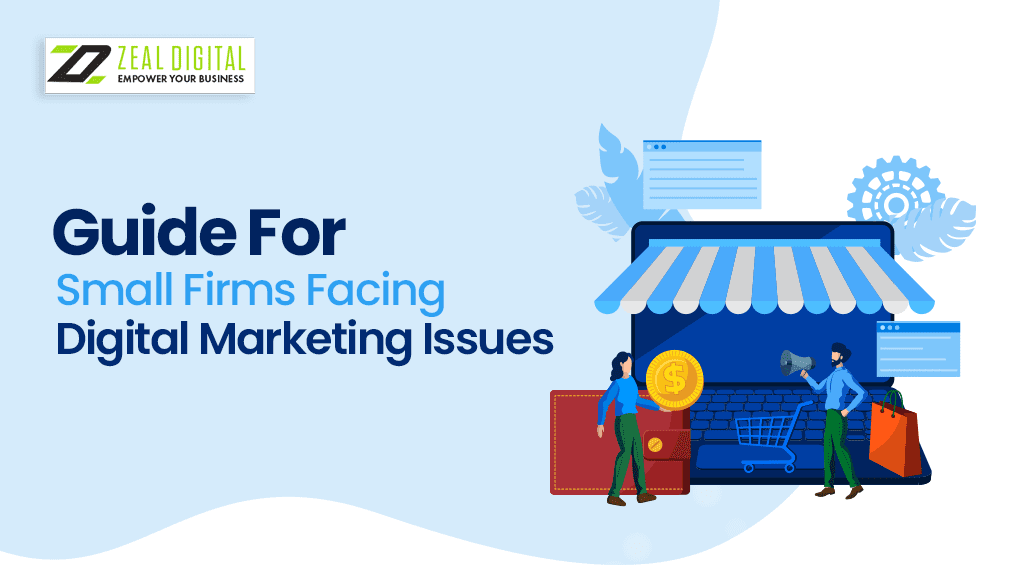In the fast-paced digital era we live in, local businesses face a unique challenge — standing out in a sea of online competitors. With the rise of mobile searches and the ever-growing trend of consumers looking for ‘services near me’, optimising your business for local search has never been more critical. In this comprehensive guide, we’ll explore innovative strategies to boost your local SEO and ensure your business ranks prominently for those crucial near me searches.
1. Optimise Your Google My Business Profile
Google My Business is the linchpin of local search optimisation. Ensure your GMB profile is up-to-date, complete and accurate. This includes providing essential information like your business name, address, phone number, website and business hours. Additionally, encourage satisfied customers to leave positive reviews, as they can significantly impact your local search rankings.
2. Localise Your Website Content
Tailor your website content to reflect your locality. This includes incorporating local keywords naturally into your content, meta tags and headers. Make sure your location is prominently displayed on your website, making it clear to search engines and users where your business is located.
3. Leverage Local Citations
Consistent NAP (Name, Address, Phone number) information across various online directories and platforms is crucial for local SEO. Ensure your business is listed accurately on platforms like Yelp, Yellow Pages, and industry-specific directories. These citations enhance your business’s credibility and authority in the eyes of search engines.
4. Mobile Optimisation is Non-Negotiable
Given the surge in mobile searches, a mobile-friendly website is no longer an option – it’s a necessity. Google prioritises mobile-friendly websites in search rankings, so ensure your site is responsive and delivers an optimal user experience across all devices.
5. Harness the Power of Local Keywords
Keyword research is the first step of SEO strategy. Identify and incorporate relevant local keywords into your website content, meta descriptions and headers. This will help your business appear in local search results when users are looking for products or services in your area.
6. Create Location-Specific Landing Pages
If your business serves multiple locations, create dedicated landing pages for each. Tailor the content to the specific needs and interests of each community, demonstrating your dedication to serving diverse localities.
7. Develop a Content Marketing Strategy
Regularly publishing high-quality, locally-focused content not only engages your audience but also signals to search engines that your business is relevant to the local community. Share news, events, and stories about your business to establish a strong local online presence.
8. Encourage User-Generated Content
User-generated content, such as reviews, testimonials, and social media mentions, is a powerful tool for local SEO. Encourage satisfied customers to share their experiences online, boosting your credibility and visibility in local searches.
9. Implement Schema Markup
Schema markup helps search engines understand the context of your content, providing more informative search results for users. Implementing local business schema markup on your website can improve your chances of appearing in local search features like rich snippets and knowledge panels.
10. Foster Local Backlinks
Building a network of local backlinks is an effective way to boost your local SEO. Reach out to local businesses, organisations and influencers for collaboration opportunities. Guest posting on local blogs or participating in community events can also help generate valuable local backlinks.
11. Utilise Local Business Schema Markup
Enhance your local SEO efforts by incorporating schema markup specifically designed for local businesses. This structured data provides search engines with detailed information about your business, such as operating hours, accepted payment methods and customer reviews, leading to more informative search results.
12. Implement a Click-to-Call Button
Make it easy for potential customers to contact you by including a click-to-call button on your mobile website. Mobile users often prefer the convenience of calling directly and this can positively influence your local search rankings.
13. Leverage Local Social Media Platforms
Engage with your local community on social platforms like Facebook, Instagram and Twitter. Actively participate in local groups, share community events, and respond promptly to comments and messages. Social signals play a role in search engine algorithms, so a vibrant social media presence can boost your local SEO.
14. Monitor and Respond to Online Mentions
Set up alerts for your business name and monitor online mentions. Respond promptly to both positive and negative feedback, demonstrating your dedication to customer satisfaction. Engaging with online conversations can contribute to a positive online reputation and improve your local search visibility.
15. Geo-Targeted Advertising
Use geo-targeted advertising campaigns to reach potential customers in specific locations. Platforms like Google Ads and social media advertising allow you to target users based on their location, increasing the relevance of your ads for local audiences.
16. Optimise Images for Local SEO
Include images on your website that are geotagged and relevant to your locality. Use descriptive filenames and alt text that incorporate local keywords. Optimising your images enhances your chances of appearing in local image search results.
17. Prioritise Website Speed
A fast-loading website not only improves user experience but also positively impacts your search rankings. Optimise your website’s speed by leveraging browser caching, compressing images and using a reliable hosting provider.
18. Implement a Local Link Building Strategy
Build relationships with local influencers, bloggers and businesses to earn high-quality local backlinks. Consider sponsoring local events or charities, as this can lead to coverage on local websites and news outlets.
19. Local SEO Analytics
Regularly analyse your local SEO performance using tools like Google Analytics and Google Search Console. Monitor key metrics such as local search rankings, website traffic and user engagement. Use the insights gained to fine-tune your strategy and identify areas for improvement.
20. Offer Local Promotions and Discounts
Attract local customers by offering promotions and discounts specific to your location. Promote these offers on your website, social media channels, and local online platforms to encourage local engagement and increase visibility in near me searches.
In Conclusion
The roadmap to successfully ranking your local business for ‘near me’ searches involves a multifaceted strategy that encompasses technical SEO, engaging content and active community involvement. By implementing these additional strategies, you’ll not only enhance your local search visibility but also build a strong, lasting presence within your community.
As an SEO digital company, staying ahead in the local SEO game is crucial for ensuring that your business thrives in the digital marketplace. Consistently adapting to the evolving landscape of local SEO will not only boost your business’s visibility in local searches but also establish it as a trusted and prominent player in your community. Remember, the journey to local SEO success is ongoing, and the efforts you invest today will yield long-term benefits for your business’s growth and success.
FAQs
Q2: What Role Does Social Media Play in Local SEO, and How Can I Leverage It?
Social media is a valuable tool for local SEO. Actively engage with your local community on social platforms like Facebook, Instagram and Twitter. Participate in local groups, share community events and respond to comments. A vibrant social media presence contributes to positive social signals, influencing your local search visibility.
Q3: How Important Are Online Reviews for Local SEO, and How Can I Manage Them Effectively?
Online reviews significantly impact local SEO. Positive reviews build credibility, while negative ones can hurt your reputation. Encourage customers to leave reviews and respond promptly to both positive and negative feedback. Managing online mentions contributes to a positive online reputation and improved local search rankings.
Q4: Is Mobile Optimisation Really Necessary for Local SEO, and How Can I Ensure My Website Is Mobile-Friendly?
Yes, mobile optimisation is crucial for local SEO. Google prioritises mobile-friendly websites in search rankings. Ensure your website is responsive and provides an optimal user experience on various devices. Incorporate a click-to-call button to make it easy for mobile users to contact your business directly.
Q5: How Can I Measure the Effectiveness of My Local SEO Strategies?
Utilise tools like Google Analytics and Google Search Console to analyse key metrics such as local search rankings, website traffic and user engagement. Monitor the performance of your local SEO efforts and use the insights gained to refine your strategy. Regular analytics assessments help you adapt to changes and identify areas for improvement.






